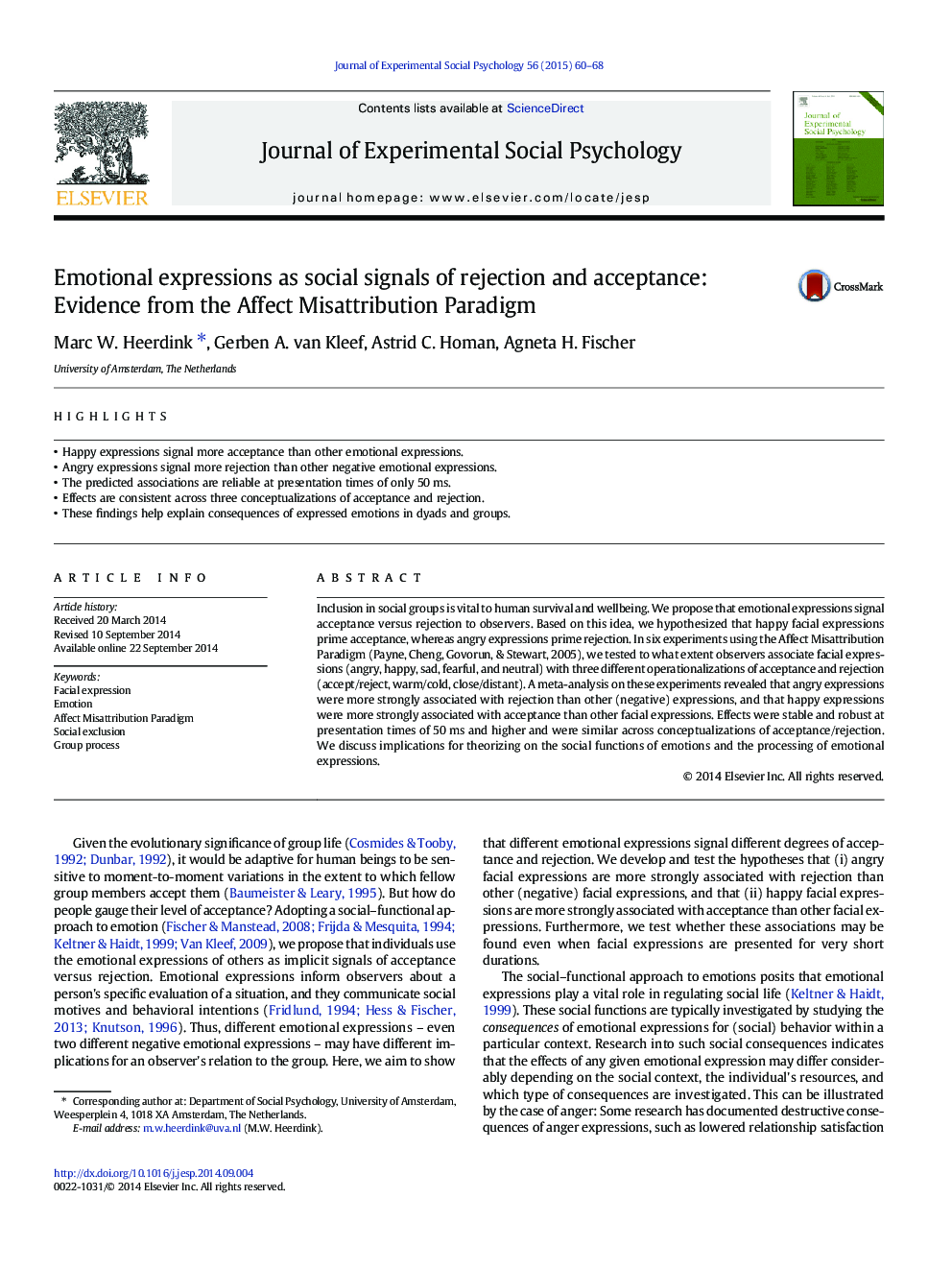| Article ID | Journal | Published Year | Pages | File Type |
|---|---|---|---|---|
| 947725 | Journal of Experimental Social Psychology | 2015 | 9 Pages |
•Happy expressions signal more acceptance than other emotional expressions.•Angry expressions signal more rejection than other negative emotional expressions.•The predicted associations are reliable at presentation times of only 50 ms.•Effects are consistent across three conceptualizations of acceptance and rejection.•These findings help explain consequences of expressed emotions in dyads and groups.
Inclusion in social groups is vital to human survival and wellbeing. We propose that emotional expressions signal acceptance versus rejection to observers. Based on this idea, we hypothesized that happy facial expressions prime acceptance, whereas angry expressions prime rejection. In six experiments using the Affect Misattribution Paradigm (Payne, Cheng, Govorun, & Stewart, 2005), we tested to what extent observers associate facial expressions (angry, happy, sad, fearful, and neutral) with three different operationalizations of acceptance and rejection (accept/reject, warm/cold, close/distant). A meta-analysis on these experiments revealed that angry expressions were more strongly associated with rejection than other (negative) expressions, and that happy expressions were more strongly associated with acceptance than other facial expressions. Effects were stable and robust at presentation times of 50 ms and higher and were similar across conceptualizations of acceptance/rejection. We discuss implications for theorizing on the social functions of emotions and the processing of emotional expressions.
